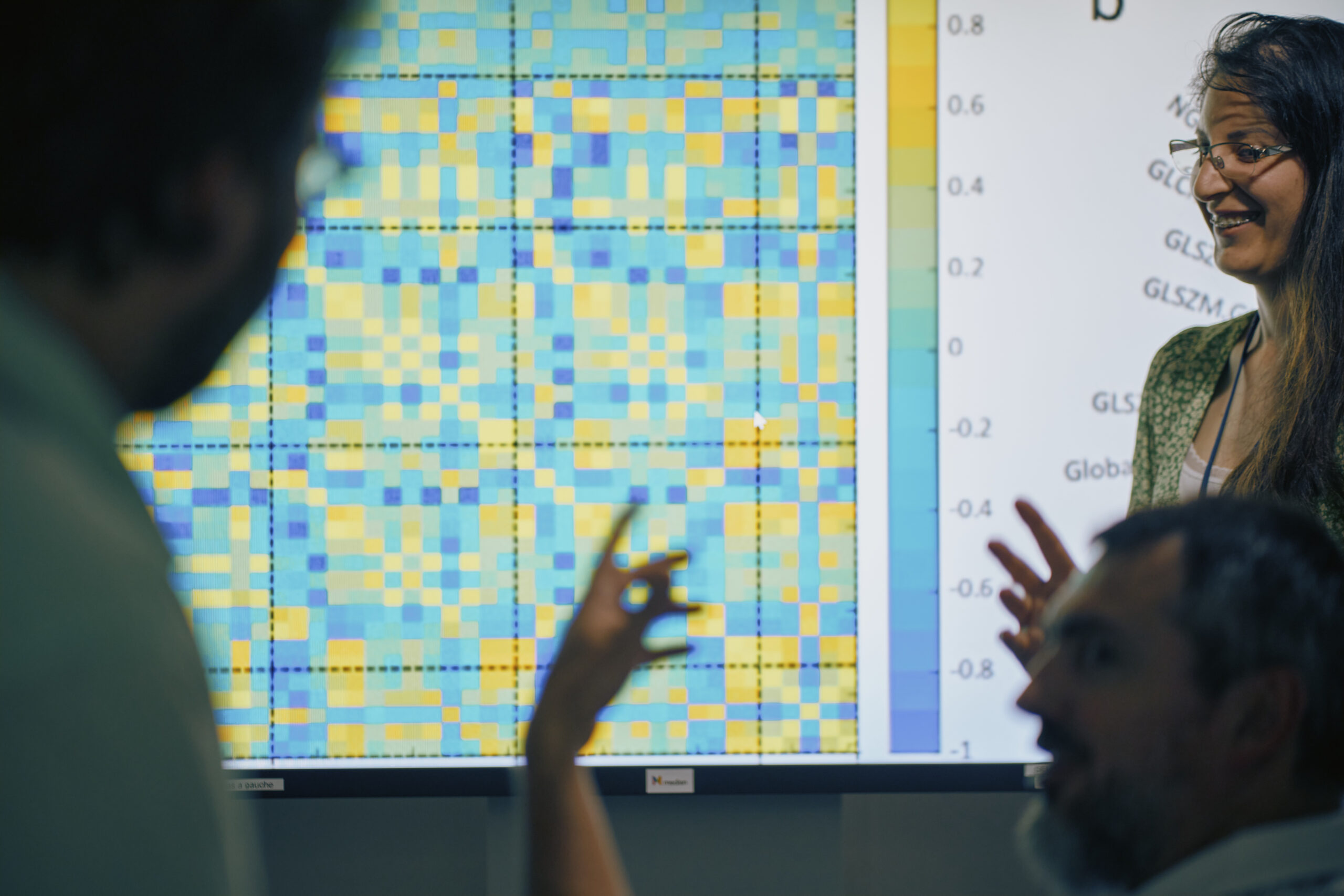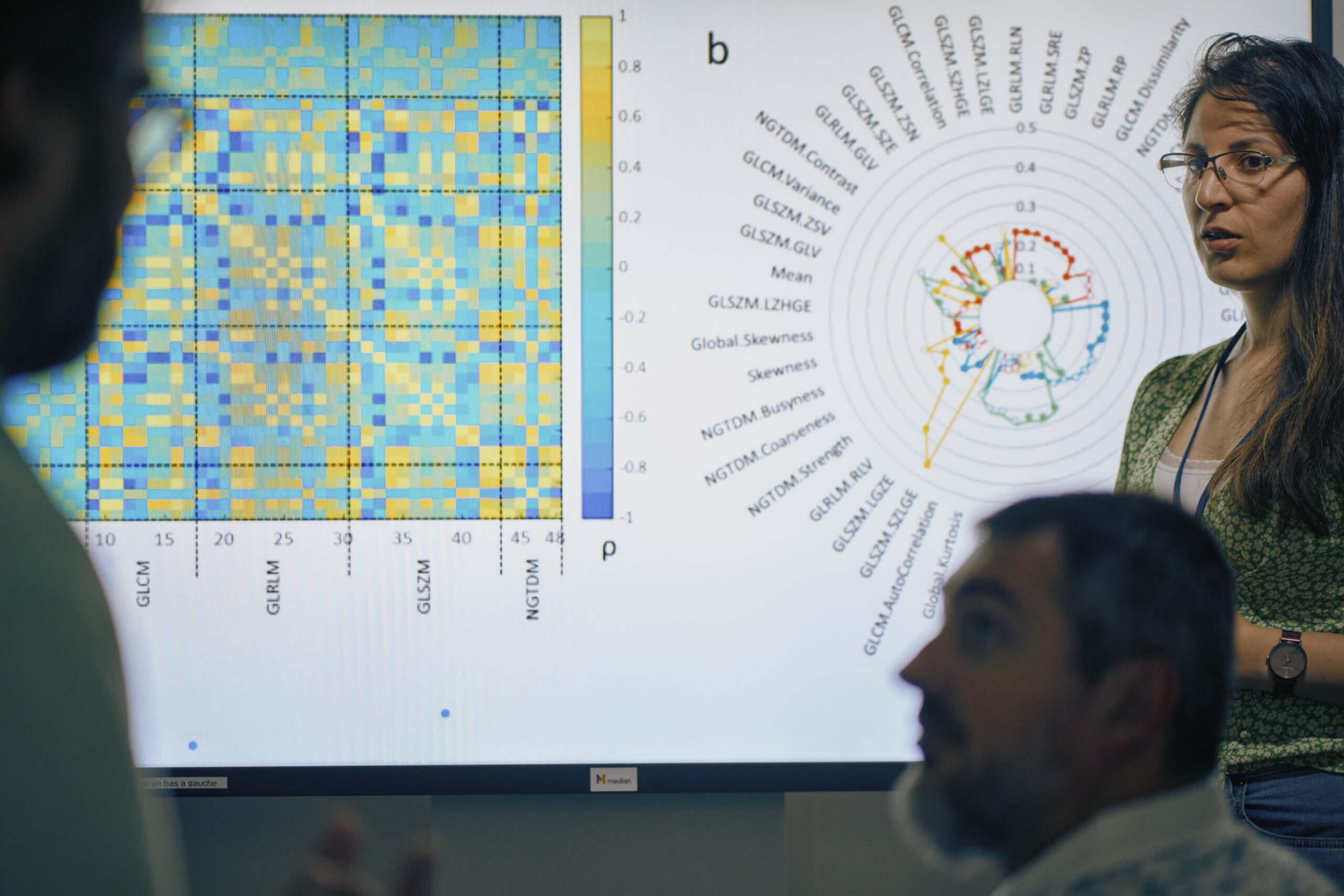
The world of clinical research is witnessing a remarkable transformation with the advent of artificial intelligence (AI) technologies. One area where AI is making a profound impact is in oncology clinical trials, particularly in the realm of medical imaging.
Medical imaging is an incredibly important component in an oncology clinical trial. At every step of the way, images are a key indicator in identifying response to treatment. Advanced algorithms and machine learning models are revolutionizing the way medical images are acquired, processed, interpreted, and utilized during clinical trials.
AI-powered algorithms can rapidly and accurately analyze vast amounts of medical imaging data, providing quantitative measurements and objective assessments. This not only ensures greater consistency and reliability in image analysis but also significantly reduces the time required for human interpretation.
In this article, written by AI Imaging expert and Head of Imaging Lab at Median, Sebastien Jacques, we explore 5 incredible ways imaging AI is reshaping the landscape of imaging in oncology clinical trials.
1. Enhanced Image Analysis
Traditionally, medical images acquired during clinical trials are interpreted by human experts only. Given the amount of subjectivity involved in the current process, image analysis done this way is at risk of variability. With the emergence of imaging AI, this landscape has drastically changed.
AI-powered algorithms can rapidly and accurately analyze vast amounts of medical imaging data, providing quantitative measurements and objective assessments. This not only ensures greater consistency and reliability in image analysis but also significantly reduces the time required for human interpretation.
2. Improved Patient Selection and Stratification
One of the crucial aspects of clinical trials is patient selection and stratification. Identifying eligible patients who meet specific criteria is vital for ensuring the clinical study’s success and relevance. Imaging AI plays a pivotal role in this process by enabling researchers to evaluate biomarkers and disease characteristics in potential trial participants.
By leveraging AI algorithms, clinicians can identify individuals with precise imaging patterns, allowing for more targeted recruitment and better stratification of patients based on their specific imaging characteristics.
3. Accelerated Trial Enrollment
The enrollment process for clinical trials can be notoriously time-consuming, leading to delays in research and development. However, imaging AI has the potential to accelerate trial enrollment significantly.
By automating the analysis of medical images, AI algorithms can swiftly assess patients’ eligibility and expedite the screening process. This expeditious evaluation not only saves valuable time but also improves patient recruitment and increases the likelihood of meeting recruitment targets promptly.
4. Early Detection of Treatment Response
Tracking the response to treatment in clinical trials is critical for assessing the efficacy of novel therapies. Imaging AI offers a unique advantage in this regard by enabling early detection and quantification of treatment response based on objective imaging biomarkers.
AI algorithms can precisely detect and measure changes in tumor size, metabolic activity, or other relevant imaging features, as well as imaging features that are not identifiable to radiologist using radiomics. This allows researchers to monitor treatment effectiveness in real-time. This early detection of treatment response can potentially lead to quicker adjustments in trial protocols, resulting in more efficient and effective clinical trials.
5. Enhanced Safety Monitoring
Patient safety is of paramount importance in clinical trials. AI-powered imaging analysis tools can contribute significantly to enhanced safety monitoring during the trial process. By continuously monitoring medical images, AI algorithms can swiftly identify adverse events, such as unexpected changes in organ structure or the development of abnormalities.
Timely detection of such events enables investigators to take immediate action, ensuring patient safety and minimizing potential risks.
Conclusion
The integration of imaging AI into oncology clinical trials marks a significant milestone in the advancement of therapeutic innovation. By automating and streamlining the image analysis process, AI technologies offer improved accuracy, consistency, and efficiency. From patient selection and stratification to accelerated trial enrollment and early detection of treatment response, the impact of imaging AI on clinical trials is profound.
As the field of AI continues to evolve and refine its capabilities, we can anticipate even more transformative changes in the future, leading to more efficient and successful clinical trials, ultimately benefiting patients and advancing medical knowledge.
Learn more about how Median is leading the way when it comes to leveraging Imaging AI to optimize oncology clinical trials.
You can also read

Fact sheet
Introducing Median Imaging Lab
Get more value from your oncology trials with transformative
image insights, analyses and more

Brochure
Imaging in Oncology Trials
Delivering best-in-class imaging services and expertise to clinical sponsors worldwide

